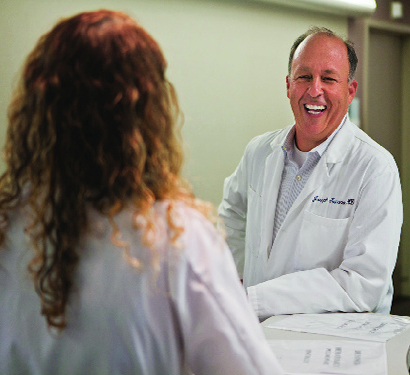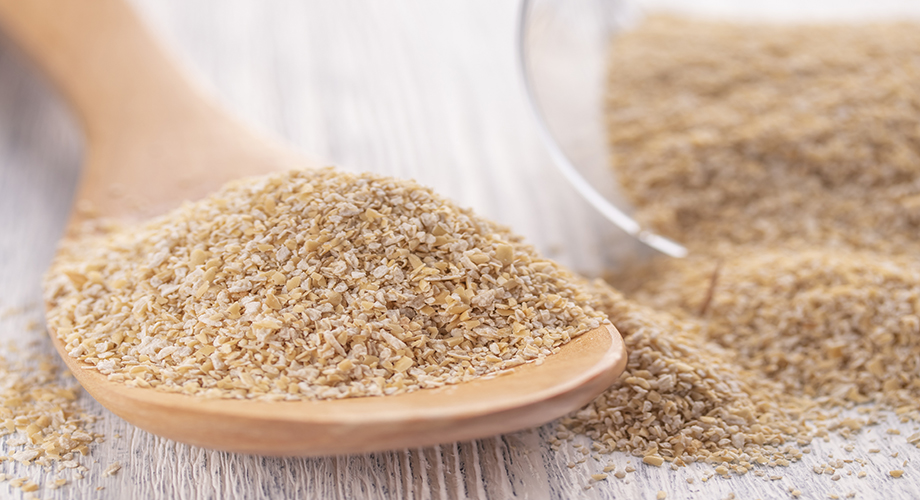Many cancer patients are fearful of undergoing treatment because they've heard about the difficult chemotherapy and radiation side effects that commonly occur.
UC Davis Comprehensive Cancer Center is working on alternative therapies as it cares for cancer patients. The hope is to not merely help people endure cancer treatment but to help them beat cancer and live full lives.
One source of promise may be a natural product that has been around a long time and often is a staple in "health food" diets.
It's fermented wheat germ and it's being examined in a whole new way, thanks to basic research and a clinical trial underway at the cancer center.
Turning something old into something new and exciting
A unique cancer clinical trial is being pioneered by oncologist Joseph Tuscano, who specializes in leukemia, lymphoma, multiple myeloma and other cancers of the blood. He's also the director of stem cell transplantation and cellular therapy at UC Davis Health.

Tuscano has received local and Veterans Administration funding to better understand how wheat germ may augment a patient's immune response. He is conducting a clinical trial testing the benefits of the nutritional supplement fermented wheat germ extract.
Wheat germ is the healthiest part of the wheat kernel, containing protein, fiber, healthy fats, antioxidants, and various vitamins and minerals. Although humans have consumed wheat germ for centuries, it wasn't until the 1990s that a chemist, Máté Hidvégi, first began using a fermented form to treat cancer patients in Hungary. The biochemist is the co-inventor of a patented fermented wheat germ extract-based nutraceutical.

Evidence comes home
"I stumbled upon fermented wheat germ serendipitously," Tuscano said. "One of my patients, a very smart aeronautical engineer-turned-winemaker, developed a particularly deadly form of lymphoma called mantle cell lymphoma. He feared the toxicity of conventional therapy even though he was excited about immunotherapeutics we were working on at UC Davis Comprehensive Cancer Center."
Immunotherapeutics are a promising class of treatments harnessing the body's own immune system to fight cancer. Checkpoint inhibitors are used in delivering immunotherapy. They work by turning off proteins that block a person's T-cells from attacking and killing cancer cells.
Tuscano said while he treated his patient, Norman deLeuze, with immunotherapies at the cancer center, the patient traveled the world looking for alternative therapies.

One day his patient came back and tests showed his lymphoma was shrinking.
"I asked Norman what he was taking, and he said fermented wheat germ product from Hungary," Tuscano said. "That was 2007 and let's just say my interest was sparked. I wanted to learn more. What I found out was that there wasn't a lot of research that had been done."
To the lab to find out more
The fermented wheat germ that was used in Hungary was a crude product. And there weren't many rigorous studies examining exactly how it worked. So, Tuscano set out to test fermented wheat germ extract in the laboratory with models of human cancer.
"It really did kill the cancer cells in the tissue culture dish, as well as in animals with cancer," Tuscano said. "These components directly kill cancer cells, but they also enhance the immune system."
Tuscano's patient began helping to raise money to fund the research because alternative research is very difficult to get funded, primarily because it's not mainstream medicine.
Unfortunately, after an unexpected remission, deLeuze eventually lost his cancer battle but he far outlived expectations.
Thanks to the deLeuze family, over $1 million has been generated to support the wheat germ research.
"What we found is that it not only helps to kill lymphoma cells, which was my primary interest, but it also appears to have the potential to kill colon, breast, lung and other malignancies and with little toxicity," Tuscano said.
Fermented wheat germ extract is also inexpensive.
The Veterans Administration gets behind the research
A clinical trial underway at UC Davis Comprehensive Cancer Center is funded by the deLeuze family and the Veterans Administration. Researchers are studying the immune effects of fermented wheat germ extract in patients with advanced cancers of the colon, bladder, breast, breast and kidney as well as melanoma who are being treated with checkpoint inhibitors.
"We're getting close to identifying the active components in the fermented wheat germ, which would create a new drug that could be applied to many different types of cancers being treated with checkpoint inhibitors," Tuscano said.
The product has thousands of proteins and peptides. Tuscano explained that he is trying to whittle the science down to understand the specific mechanisms that make the fermented wheat germ work and why it causes so little toxicity.
"We're giving patients the wheat germ for a few weeks and then we're studying their immune system before and after, Tuscano said. "The reason we are giving it to immunotherapy patients is that we know their own immune system mediates a response and we believe the fermented wheat germ may augment the immune response in these patients."
The gut could hold the key
"The secret of fermented wheat germ could lie in the microbiome of the gastrointestinal tract, which is critical for not only regulating the immune system, but also modulating the ability to repair cells," Tuscano said. "I believe that this fermented wheat germ product probably modulates that microbiome and in turn augments the immune response to help fight cancer."
Using animal models, Tuscano and his team found that fermented wheat germ enhanced the immune response in animals with cancer. It was able to kill the cancer when paired with traditional immunotherapies which they found works as well as, or better than, standard chemotherapy without toxicity.
As part of the research, some animal subjects received immunotherapy alone, some were given the wheat germ alone, and some received the wheat germ with the immunotherapy.
"When we compared them all to see who had the highest cure rate, we found that the highest cure rate was with the immunotherapy and the wheat germ. That rate was also better than the standard chemotherapy," Tuscano said.
The hope is that chemotherapy may someday be eliminated. And, in its place, cancer patients will see a better remission from it. And it may be a lot cheaper, too.
"My friend and patient Norman deLeuze would be pleased to see how far we have come," Tuscano said. "The clinical trial is proof that our greatest inspirations come from our patients."
To learn how to enroll in the fermented wheat germ clinical trial, visit www.health.ucdavis.edu/cancer/clinical-trials or call 916-734-0565.






